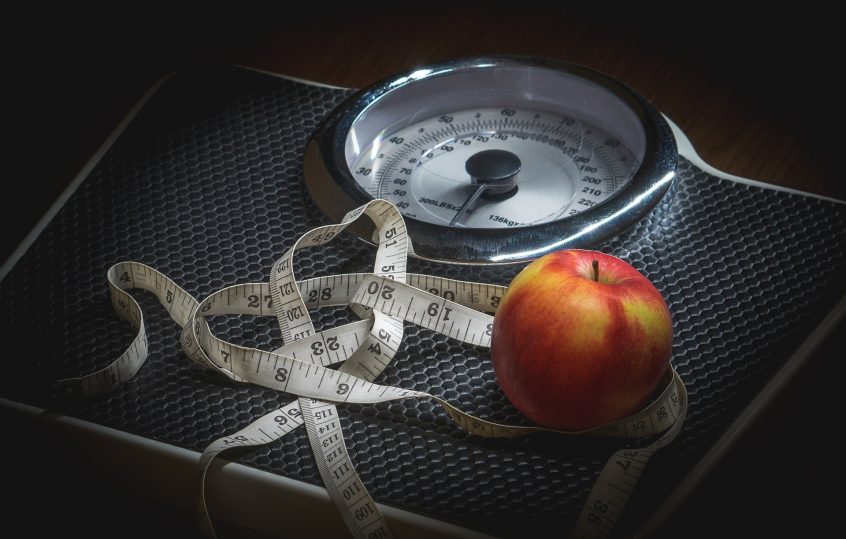Another year has arrived and brought with it a mass of misinformation about dieting and weight loss. The internet and social media are saturated with messages about detoxing after the festive season and creating a new plan for a new you!! Magazines and television advertisements are also saturated with these messages. They are everywhere. Unfortunately they fail to mention that in most cases, for most people, diets don’t work!!
In my series of blogs last year, I analysed 5 popular dieting trends:
In each of these reviews I discussed the principles of the diet, analysed the scientific evidence available and identified possible benefits and side effects. I concluded that while some of these diets may provide some short term benefit they will not necessarily result in improvements to health and are unlikely to continue to produce long term results. In fact, in some cases they can be detrimental to our health.
So this year, instead of embarking on yet another unreliable, unrealistic diet, perhaps you can try focusing on making changes to your food intake that will improve your health and wellbeing.
Here is my top 5 list of simple, easy and effective changes you can make to your food intake today.
- Increase your intake of vegetables
Did you know that between one third and half of our food intake each day should come from vegetables? Do you achieve this every day?
Whether they’re fresh, frozen or canned, eating more vegetables is one of the easiest things we can do to improve our health and wellbeing. Vegetables are full of vitamins and minerals, they contain fibre that helps keep our gut healthy, and antioxidants that help fight disease. See my previous blog for my top 10 tips and recipe ideas to include more vegetables every day.
- Choose wholegrain cereals instead of processed carbohydrates
The quality of food we eat is as important as the quantity when it comes to health outcomes. Research shows a connection between whole grains and better health. Eating wholegrains is associated with lower cholesterol levels and a reduced risk of cardiovascular disease, a reduced risk of type 2 diabetes, improved gut health and a reduced risk of diverticular disease.
Here are a few simple ways you can experiment with wholegrains this year.
- Choose oats or muesli instead of processed breakfast cereals
- Choose wholegrain bread instead of white bread
- Experiment with using brown rice
- Experiment with recipes containing quinoa, barley or other grains
- Reduce your intake of processed foods
Highly refined, processed foods often contain lots of fat, sugar and salt but provide very few vitamins and minerals. These include food like:
- processed meat including bacon and sausages
- takeaway foods including pies, pizza, burgers, chips
- savoury snack foods like chips, corn chips and crackers
- sweet biscuits, cakes and pastries
- lollies and chocolate
- ice cream and other desserts
- cordial, soft drink, fruit juice
Reducing your intake of these foods will assist with weight reduction, improve lipid levels, blood pressure and cardiovascular risk, as well as improve blood glucose levels.
- Drink less alcohol
Like processed foods and sweetened drinks, alcohol provides us with very little nutritional value and increased intake is linked to poor health. The Australian guidelines have recently been revised and updated to reflect the most recent evidence on the health effects of drinking alcohol. If you choose to drink alcohol, the proposed guidelines for healthy men and women recommend no more than 10 standard drinks per week and no more than 4 standard drinks on any one day. The less you choose to drink, the lower your risk of alcohol related harm. Information on what constitutes a standard drink can be found at https://www.health.gov.au/health-topics/alcohol/about-alcohol/standard-drinks-guide.
- Increase your intake of water
We need to keep well hydrated to keep our body working well. It is important to choose water instead of drinks with added sugars, such as soft drinks and cordials, fruit drinks, vitamin waters, energy and sports drinks or alcohol. These drinks contain lots of sugar and extra energy that can increase the risk of weight gain, or difficulty achieving and maintaining a comfortable, healthy weight. Tea and coffee also provide water, although they are not suitable for young children and large quantities can have unwanted stimulant effects in some people.
Of course, to keep healthy we also need to move our body. We are an increasingly busy society, but many of us spend a large proportion of our days sitting. This lack of activity is associated with poor health. Regular physical activity however is associated with many health benefits including a reduced risk of many chronic diseases. It is important to remember that doing any physical activity is better than doing none.
Here are some ideas of how you can start moving more.
- Take the dog for a walk
- Go for a walk in your lunch break
- Go for a bike ride
- Go for a swim at the beach
- Go outside and jump on the trampoline or kick a ball with your children or grandchildren
- Take some dance classes
The options are endless, so think about what might work for you.
So, are you ready to ditch the diets this year and focus on living well? You can start by reducing your intake of processed foods and alcohol and instead nourish your body with healthy, nutritious foods like vegetables and wholegrains and hydrate it with water. Don’t forget to find some time each day to move your body in a way that is fun and enjoyable.
If you would like help with developing healthy eating or lifestyle behaviours, or if you would like practical assistance for making any of these suggested changes to improve your health, please contact me. You can find my contact details and how to book an appointment on our website at www.zestinfusion.com.au.
Share this Post

